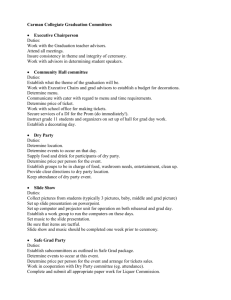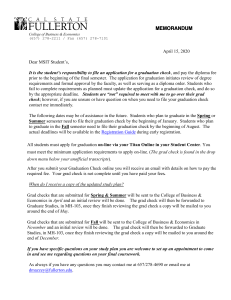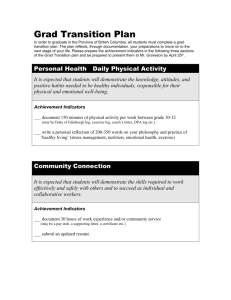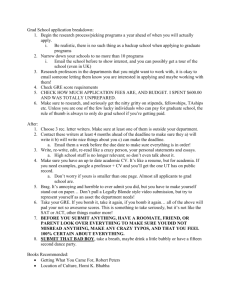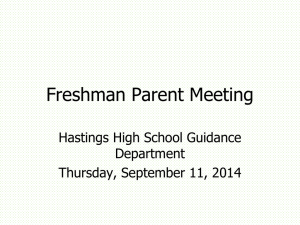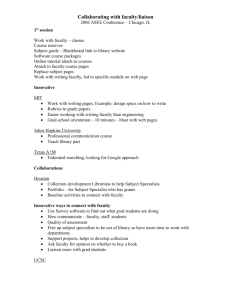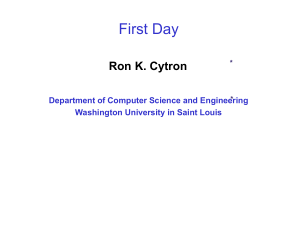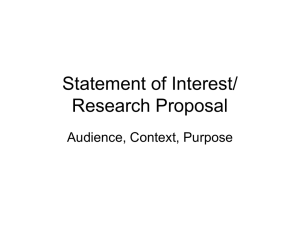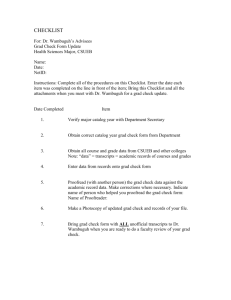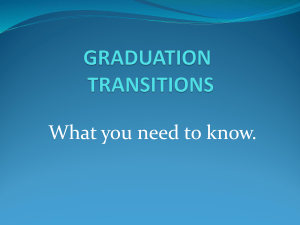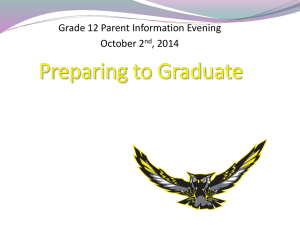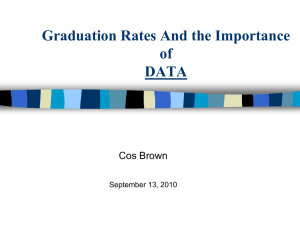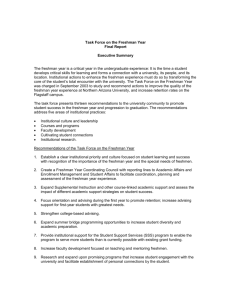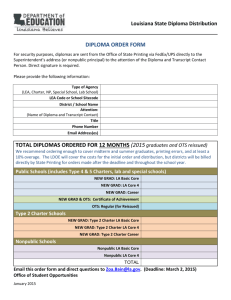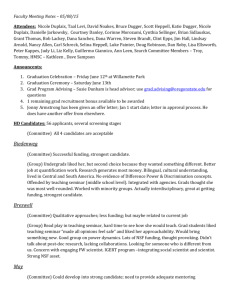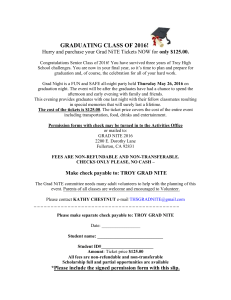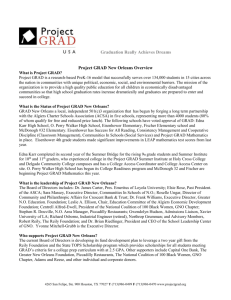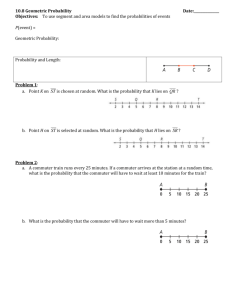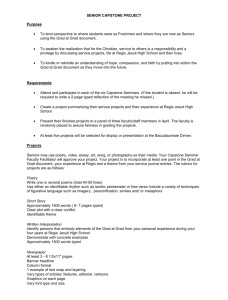Charge #1: One measure of student success is graduation rates
advertisement
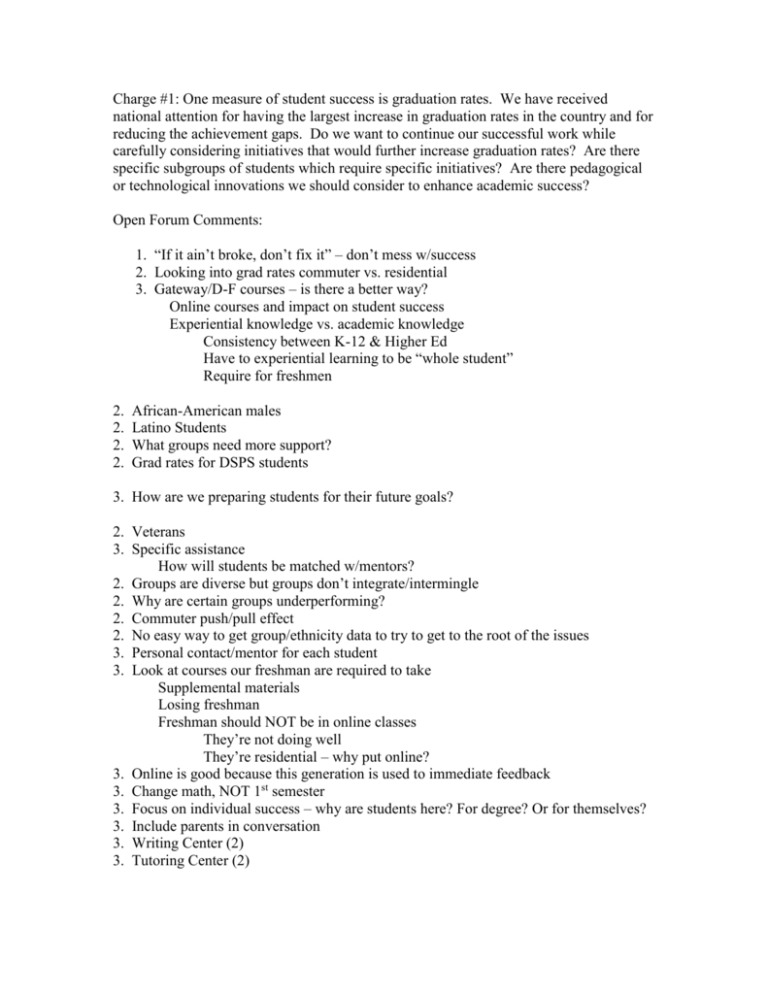
Charge #1: One measure of student success is graduation rates. We have received national attention for having the largest increase in graduation rates in the country and for reducing the achievement gaps. Do we want to continue our successful work while carefully considering initiatives that would further increase graduation rates? Are there specific subgroups of students which require specific initiatives? Are there pedagogical or technological innovations we should consider to enhance academic success? Open Forum Comments: 1. “If it ain’t broke, don’t fix it” – don’t mess w/success 2. Looking into grad rates commuter vs. residential 3. Gateway/D-F courses – is there a better way? Online courses and impact on student success Experiential knowledge vs. academic knowledge Consistency between K-12 & Higher Ed Have to experiential learning to be “whole student” Require for freshmen 2. 2. 2. 2. African-American males Latino Students What groups need more support? Grad rates for DSPS students 3. How are we preparing students for their future goals? 2. Veterans 3. Specific assistance How will students be matched w/mentors? 2. Groups are diverse but groups don’t integrate/intermingle 2. Why are certain groups underperforming? 2. Commuter push/pull effect 2. No easy way to get group/ethnicity data to try to get to the root of the issues 3. Personal contact/mentor for each student 3. Look at courses our freshman are required to take Supplemental materials Losing freshman Freshman should NOT be in online classes They’re not doing well They’re residential – why put online? 3. Online is good because this generation is used to immediate feedback 3. Change math, NOT 1st semester 3. Focus on individual success – why are students here? For degree? Or for themselves? 3. Include parents in conversation 3. Writing Center (2) 3. Tutoring Center (2) 3. Students don’t KNOW services exists How are student advised of these services? Do they retain orientation information? Students may not retain, but parents at orientation can be information backup 2. Need support services for out-of-state students 2. Need support for international students 3. Mid-year or Upper Division orientation 3. Self monitoring, self checking system for student progress 1. Continue Compact Scholars Model program for tracking progress/barriers of students 3. Student at risk failure prevention/stress/obstacles 1. Breakthrough program – prevention services for at risk students – DIDN’T GET FUNDING BUT NEEDS IT 2. Students w/mental health concerns Alcohol – need more resources Stress Illness 3. Meta-cognition, learning how to learn Transferable to post-grad, life success 2. Parental pressure – son WILL be engineer, son doesn’t want to, a real concern for faculty, impact on student success and wellness Does faculty have resources when they come across these students? 1. We’re talking about how to be better but no one seems to know all that we are already doing. 3. Career services should be compulsory 2. Again – WHY are students not making it? If we can define the problem, maybe we can fix it? 1. Emphasis is on 6-year grad rates, can we start moving towards/looking at 4 and 5 year grad rates? 1. If financial aid required 15 units, more would take 15 units. Sometimes can’t get classes 1. Initiative suggestion – study abroad tracking Empower department advisors 2. Latino students – parents don’t have college knowledge – 1st gen don’t understand system. Social capital Student engagement/involvement How to communicate with others in the larger community 2. If students can see others who have achieved their goals Positive role modeling 3. Evaluation of college experience at end of every year, portfolio Comprehensive summary 1. Faculty in Residence program How can we replicate this to/for commuter students?


